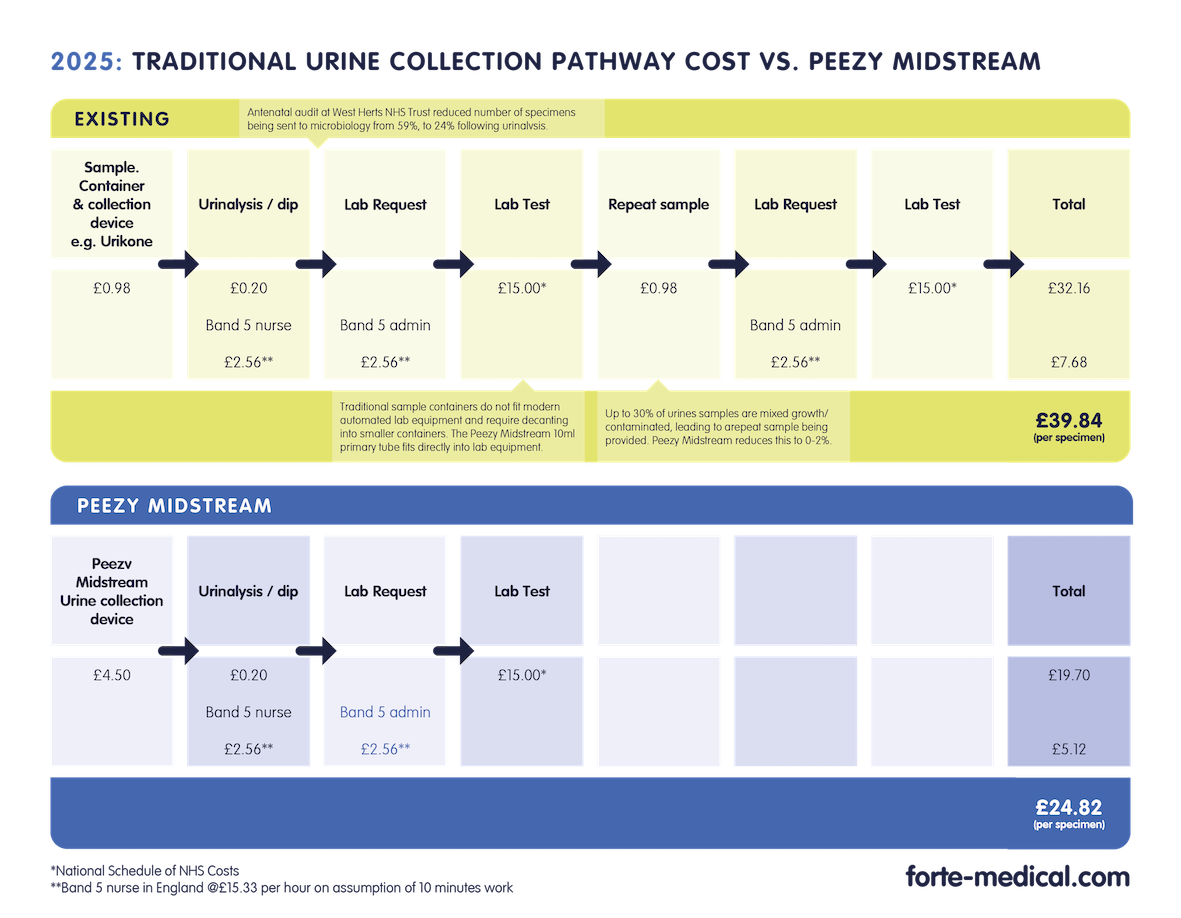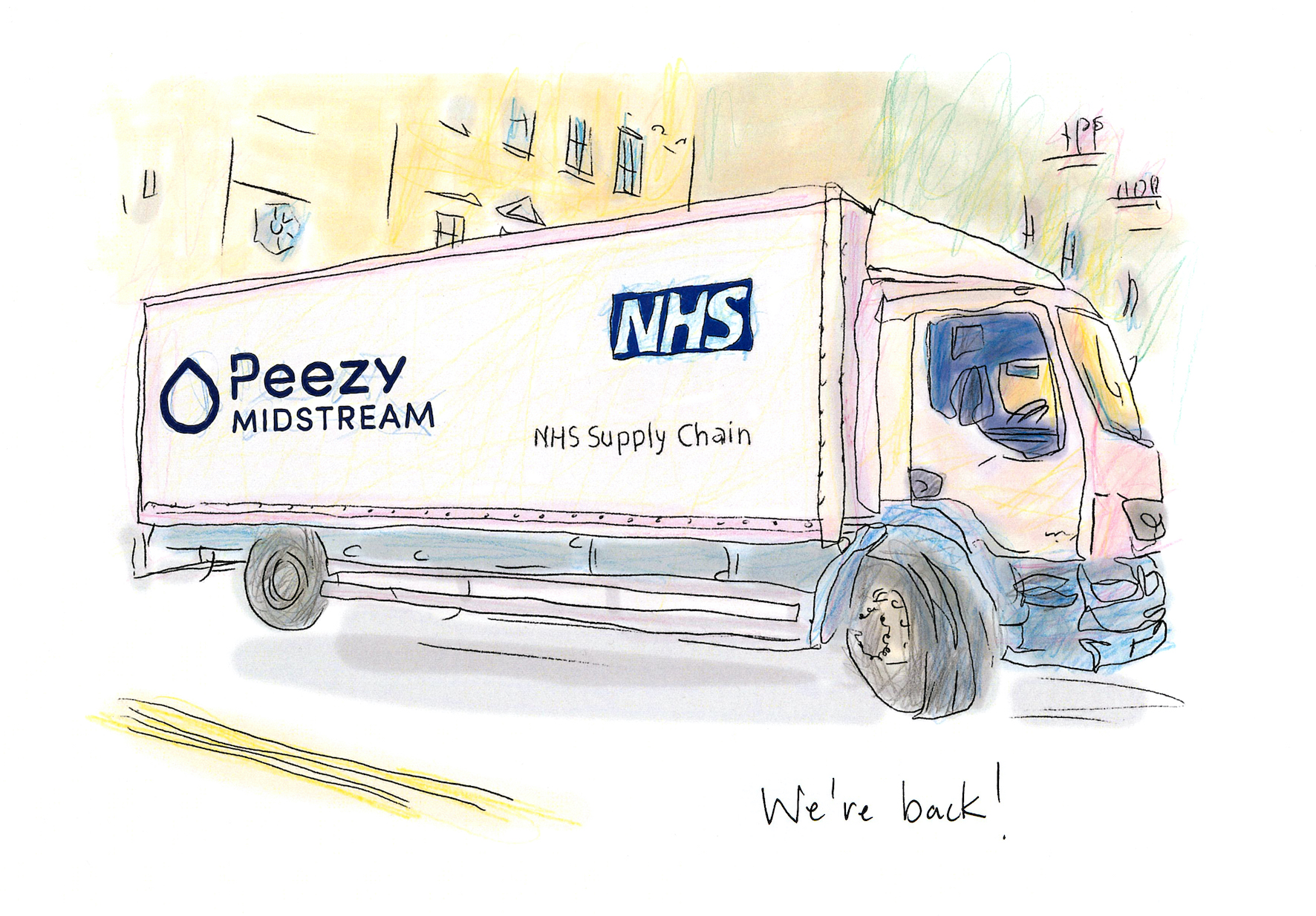Lab pathway time and cost savings



A rise in persistent UTIs… Read More

We are delighted to announce the appointment of consultant midwife and lifelong campaigner for positive childbirth, Sheena Byrom OBE to our Advisory Panel. Sheena Byrom… Read More

Back in March of this year, the NHS National Institute for Health Research contacted Forte Medical, asking for a case study… Read More

The inaugural speech delivered by Mr Matt Hancock upon his appointment as Secretary of State for Health, focused quite rightly on the… Read More

It costs so little to put it right: “The NHS spent £434 million in 2013/14 on treating184,000 patients in unplanned admissions associated with a UTI. … Read More

The appointment of Andrew Turner as Business Development lead has brought new life to the introduction of Peezy Midstream technology to a number of leading… Read More

How accurate basic medicine can tackle Hospital Acquired Infection and Antimicrobial Resistance. Read More

We are proud to be part of Urology Awareness Month this September: “Clinical Innovation in Specimen Collection and Diagnostics” Royal Society of Medicine… Read More